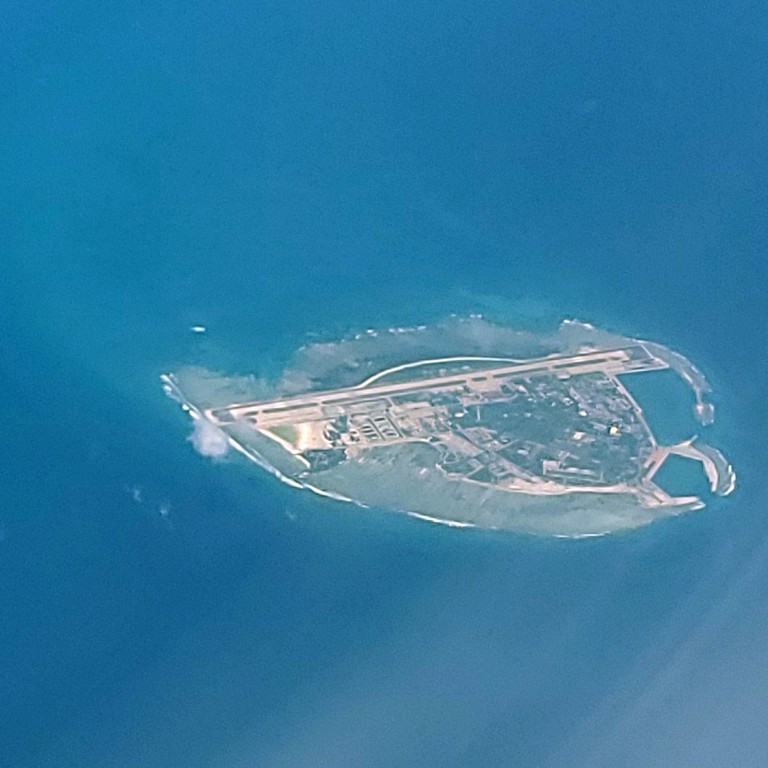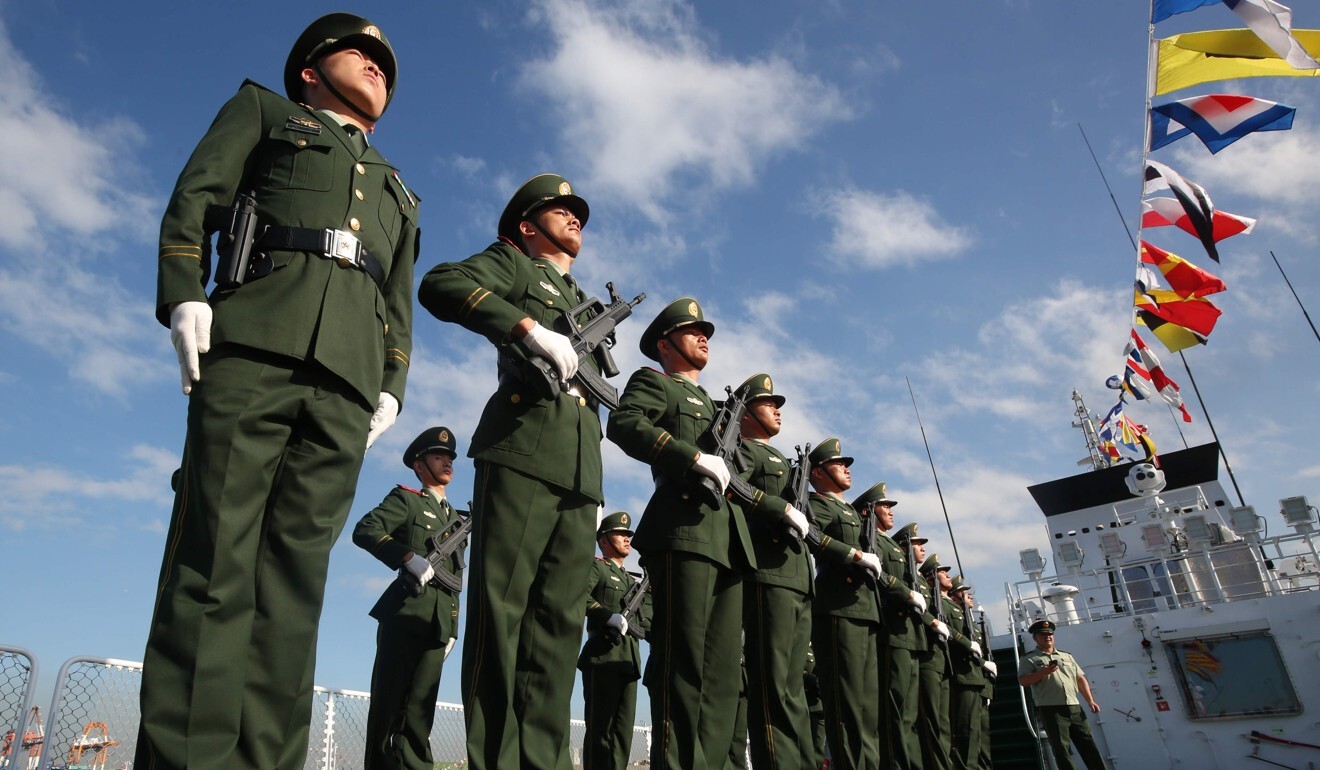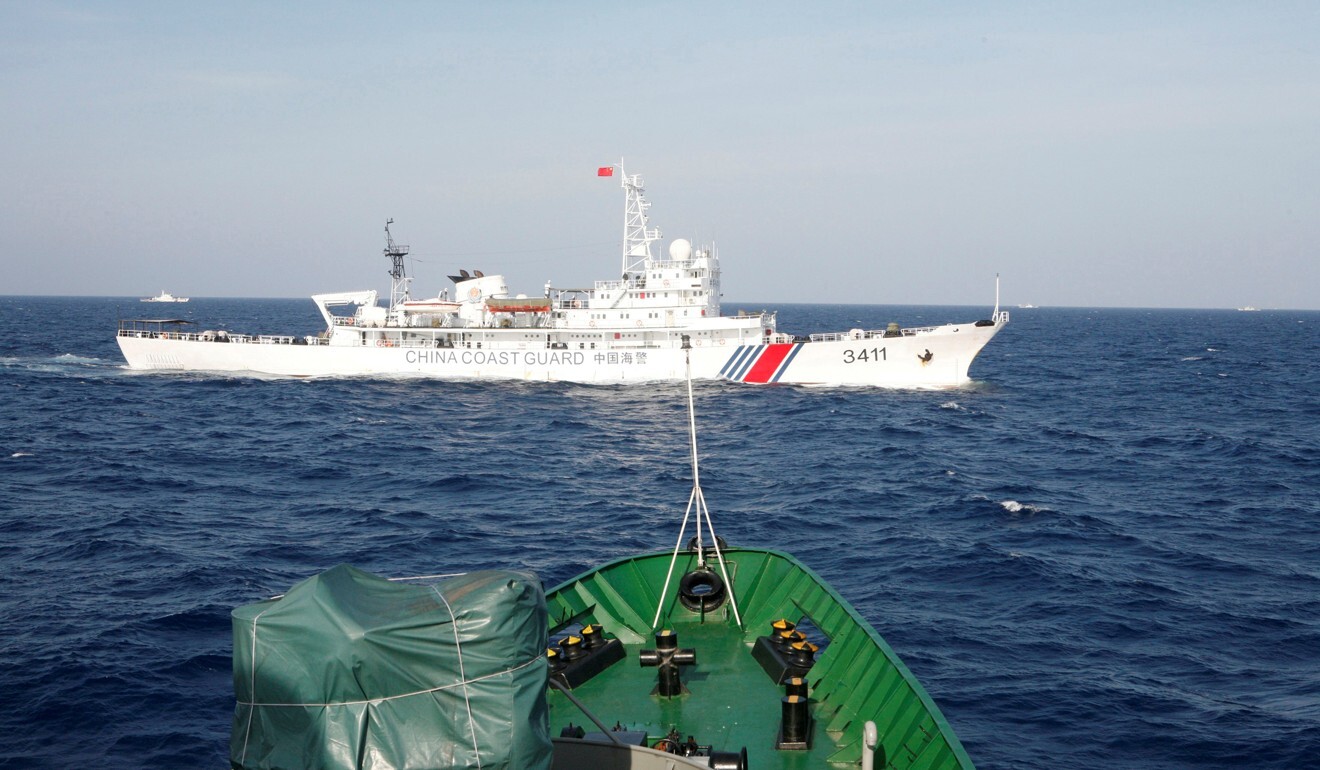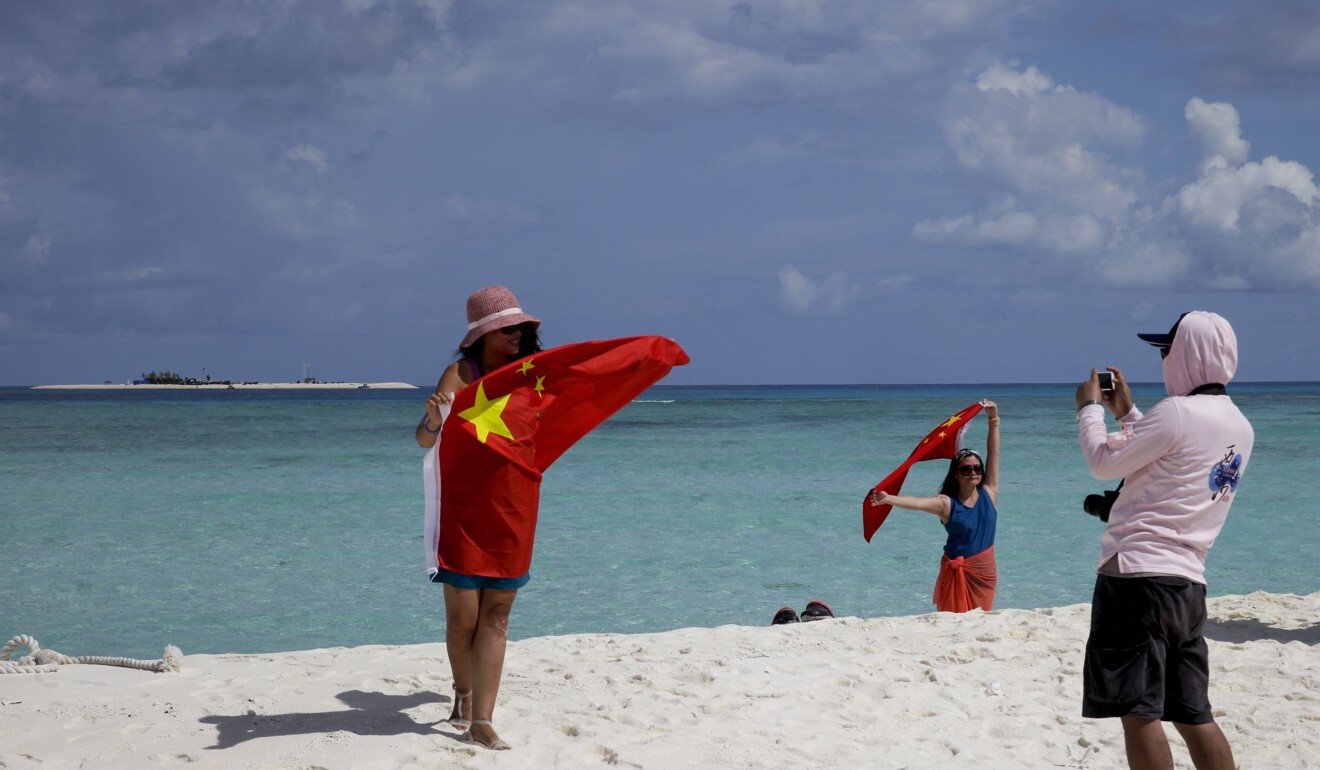
Philippines expresses ‘deep concern’ after China-Vietnam incident in South China Sea
- Citing a similar collision in June last year, Manila says it has experienced ‘how much trust in a friendship is lost’ following such incidents
- The April 3 collision between vessels from China and Vietnam has upped the ante over discussions on a code of conduct in the waters, analysts say
“Given the positive momentum on the discussions on a code of conduct in the South China Sea, it is crucial that such incidents be avoided and that differences be addressed in a manner that enhances dialogue and mutual trust,” said the Philippine Department of Foreign Affairs in a statement.
Chinese ship, Vietnamese fishing boat collide in South China Sea
On June 9, 2019, a Chinese vessel struck a Philippine fishing boat, sending all 22 Filipino fishermen aboard tumbling into the sea. The Chinese ship was accused of leaving the area without helping the crew, who were later rescued by a Vietnamese vessel – for which the Philippines once again thanked Vietnam in its Wednesday missive.
“Covid-19 is a very real threat that demands unity and mutual trust,” it said. “In the face of it, neither fish nor fictional historical claims are worth the fuse that’s lit by such incidents.”
The comments from the Philippines come amid intense finger-pointing between Hanoi and Beijing over who is to blame, with regional analysts saying it could up the ante in ongoing discussions over a code of conduct for the disputed waters.
David Koh, a Vietnam researcher who is now a private consultant, said some Southeast Asian countries might no longer see any point in a code of conduct if in reality it merely delayed a solution while they suffered a “further loss of their sovereignty in the South China Sea”.
Beijing, which claims almost the whole area, has urged an early resolution to talks on the code of conduct. But these have been complicated by the rivalry between China and the United States, and signs that some Asean members – including Vietnam, which holds the rotating chairmanship of the bloc this year – want to take a tougher stance against Beijing.
Hanoi on Friday lodged a formal protest with Beijing, accusing the Chinese ship of pursuing, hitting and sinking the fishing boat off the Paracel Islands before detaining the crew. The Chinese coast guard vessel insisted the Vietnamese boat had rammed into it after being warned to stop its illegal fishing and to leave the area.
Vietnam also revealed that on March 30, it had sent a diplomatic note to the United Nations taking issue with China’s reiteration of its “historical rights” to the South China Sea after claims lodged by Malaysia and the Philippines in recent months.
Coronavirus: Vietnam stockpiles rice as outbreak spreads and food security concerns grow
This note marks the first time Hanoi has officially acknowledged a 2016 ruling by the UN Permanent Court of Arbitration that favoured the Philippines over China in the South China Sea.
“Vietnam considers the UN Convention on the Law of the Sea (Unclos) to be the only legal basis that comprehensively and absolutely dictates the scope of rights over sea areas between Vietnam and China,” it said. “Vietnam opposes claims in the South China Sea beyond the boundaries prescribed in Unclos, including claims regarding historical rights. These claims hold no legal value.”
Analysts say the note is highly meaningful for Hanoi, as it paves the way for Vietnam to take legal action against China via the UN Permanent Court of Arbitration.
The US weighed in on the incident on Monday, describing it as the “latest in a long string of [Chinese] actions to assert unlawful maritime claims and disadvantage its Southeast Asian neighbours in the South China Sea”.

State Department spokesman Morgan Ortagus urged Beijing to focus instead on international efforts to battle the coronavirus outbreak, prompting a comeback from China’s foreign ministry spokesman Zhao Lijian, who pointed out that Washington frequently sent fighter jets to the disputed waterway and it should not link maritime disputes to the pandemic.
Collin Koh Swee Lean, a research fellow at the Institute of Defence and Strategic Studies (IDSS) at Singapore’s Nanyang Technological University, said he did not find the maritime incident unprecedented or unusual.
In disputed South China Sea, Asean claimant states are neither friends nor foes
“The Communist Party won’t be relenting on asserting China’s maritime sovereignty and rights, with or without the pandemic,” he said. “Beijing won’t be showing any magnanimity on the South China Sea front, even as it offers medical help to those very same countries grappling with the virus.”
Southeast Asia expert Carl Thayer of the University of New South Wales Canberra said he believed the Chinese coast guard vessel’s actions to “ram and sink the Vietnamese fishing boat were intentional at the tactical and operational levels”.
Le Hong Hiep, a fellow at the ISEAS-Yusof Ishak Institute in Singapore, said the sea clash was “another indication of lingering tensions between China and Vietnam, generated by their dispute over the Paracels as well as fishing rights in waters around the archipelago”.

“It is unlikely the incident was linked to China’s wish to take advantage of the world’s preoccupation with the Covid-19 outbreak or the visit of USS Theodore Roosevelt to Vietnam last month,” he said, referring to how an American navy ship docked in the Southeast Asian country for only the second time since the end of the Vietnam war, a move analysts said was Washington’s way of showing support for its ally.
US defence secretary Mark Esper visited Vietnam last November to announce the gift of a coast guard cutter to boost patrols, more than a month after a Chinese survey ship left Vanguard Bank in the disputed waters.
US navy aircraft carrier Theodore Roosevelt to visit Vietnam as South China Sea tensions simmer
The Haiyang Dizhi 8, accompanied by heavily armed coast guard vessels, had first entered the area in early July to pass through an oil block operated by Vietnam’s partner, Russian energy company Rosneft.
Hanoi then accused Beijing of territorial violations, and was told that foreign-owned oil operations on the reef violated China’s interests.
In December, there was a high-profile spat between Beijing and Jakarta after a Chinese coast guard vessel escorting Chinese fishing boats around Indonesia’s Natuna Islands, while in February, a Washington-based think-tank highlighted a fresh stand-off over energy exploration in the South China Sea involving Malaysia, China and Vietnam.

Malaysia had in December filed an extended shelf claim in the South China Sea to the UN’s Commission on the Limits of the Continental Shelf that could help it establish rights over all seabed and subsoil resources, a move China opposed.
Koh of IDSS said while Bejing had been “bullying” smaller and weaker Asean nations on the South China Sea issue, it had been more circumspect with Indonesia and Malaysia. After testing the “red line” with Indonesia in the Natunas, he expected China would refrain from doing more, and with Malaysia, it would not want to “provoke” the new government led by Prime Minister Muhyiddin Yassin.
Malaysia, China and Vietnam in ‘dangerous, ongoing game of chicken’ in South China Sea
“So beyond the de facto permanent coast guard presence off Sarawak, I don’t think China wishes to alienate another friendly Southeast Asian country with more drastic forms of policing actions,” Koh said.
As for Vietnam, Hiep of the ISEAS-Yusof Ishak Institute said Vietnamese fishermen would continue fishing in the disputed waters.
“[They] have been fishing there for centuries and are encouraged by Hanoi to continue doing so to help maintain its claims to the archipelago, half of which was forcefully seized by China from Vietnam in 1974.”
Referring to last week’s skirmish, he added: “This type of incident has happened before, and it will continue to happen in the future. This is exactly the reason why a code of conduct for the South China Sea is needed.”
Sign up now and get a 10% discount (original price US$400) off the China AI Report 2020 by SCMP Research. Learn about the AI ambitions of Alibaba, Baidu & JD.com through our in-depth case studies, and explore new applications of AI across industries. The report also includes exclusive access to webinars to interact with C-level executives from leading China AI companies (via live Q&A sessions). Offer valid until 31 May 2020.


